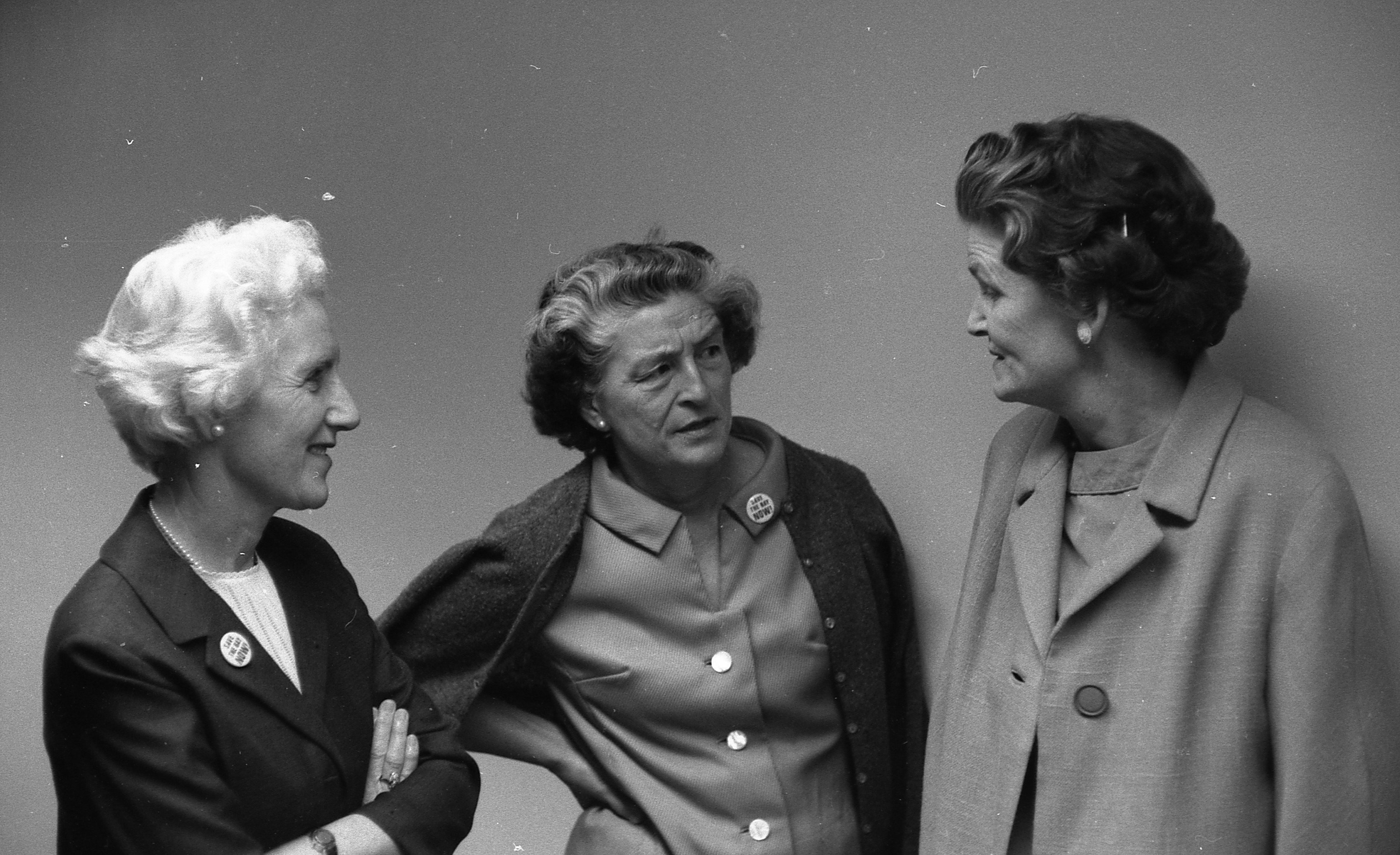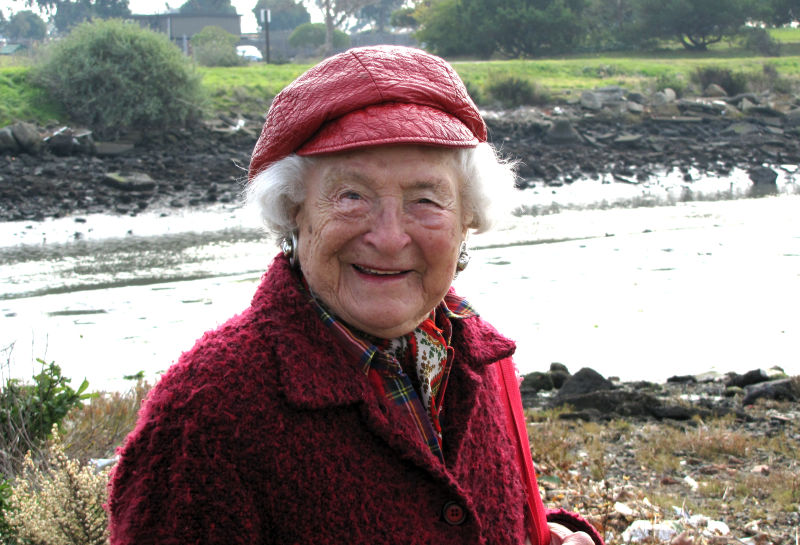It was a bold undertaking for a woman married to the head of a major mining company. McLaughlin’s husband was Donald McLaughlin, president of Homestake Mining Co.
It was also 1961. The term “environmentalism” had not yet entered the popular lexicon and many didn’t support the women’s campaign.
As KQED’s Amy Standen reported in 2011:
McLaughlin says it was not always a popular position to take. “I got called all kinds of names, not very complementary,” she recalls.
But while developers complained, Save the Bay was growing as an organization, in ways that other groups hadn’t thought to do in the past.
“They very wisely turned themselves into a mass organization by charging $1 for membership,” says UC Berkeley professor of geology Richard Walker. “And they very quickly had thousands, even tens of thousands of members within two years.”
In addition to its vast membership, Save the Bay rallied the media. Pete Seeger even wrote a song about the Bay, calling it a “sludge puddle, sad and gray.”
Until this point, says Walker, environmentalism had been a small, elite movement. But Save the Bay changed that.
Over the years, McLaughlin won victories to open parks and restore public access to the shoreline.
“We have a cleaner, healthier and more vibrant Bay because of Sylvia’s efforts,” Save The Bay Executive Director David Lewis said in a statement. “Her drive, determination and spark will remain an inspiration to us all.”
A memorial service will be held on Tuesday, Feb. 2 at 4 p.m., at St. Mark’s Episcopal Church in Berkeley.
KQED interview with McLaughlin about why she started Save the Bay:

